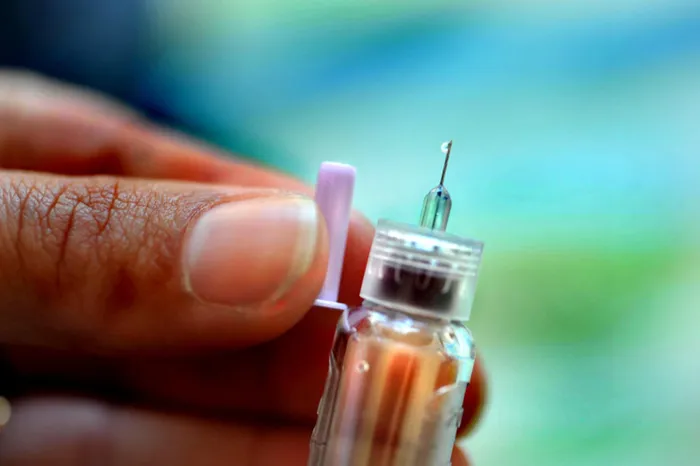
Experts say diabetes should not hinder children's ability to run, laugh and enjoy life. Technological tools such as continuous glucose monitoring and education apps enable families to track and plan with ease.
Image: Unsplash
Birthday parties, Halloween festivities, playdates, and rugby games are often the cherished hallmarks of childhood, brimming with laughter and adventure. Yet for many South African children living with diabetes, these joyful moments are accompanied by the weight of responsibility, requiring meticulous monitoring and management that their peers may never understand.
“Childhood should be about carefree fun and discovery, not constant health monitoring,” says Tania Joffe, founder of Unu Health, a digital health platform dedicated to empowering South Africans through early screening and accessible healthcare solutions. “Yet for thousands of children grappling with Type 1 or Type 2 diabetes, daily routines are dictated by blood sugar checks, meal planning, and the emotional burden of feeling ‘different’.”
Diabetes, often perceived as a chronic condition affecting adults, is increasingly making its mark on younger populations. Data reveals a stark increase in diabetes rates in South Africa, surging from approximately 4.5% in 2010 to 12.7% by 2019 among adults, as reported by BioMed Central. Alarmingly, across Africa, an estimated 50,600 children under 20 are living with Type 1 diabetes. In South Africa alone, about 0.8 in every 100,000 children aged 0-14 are affected — concerningly, nearly 10% of those developing Type 1 diabetes remain undiagnosed.
The situation becomes even more alarming when considering Type 2 diabetes, a condition traditionally associated with adult lifestyles. “We’re observing a troubling trend of young people developing insulin resistance and early stages of Type 2 diabetes, largely driven by inactivity, processed diets, and high sugar intake,” Joffe warns. “These patterns highlight a broader lifestyle crisis we must confront, not through blame, but through education, awareness, and supportive initiatives.”
For children managing diabetes, the distinction between “fitting in” and “feeling different” often hinges on the understanding and support from family, friends, and teachers. A simple birthday cake or a bag of Halloween sweets can transform into a source of anxiety as they navigate blood sugar balance.
“Children living with diabetes display remarkable resilience,” Joffe notes. “What they need most is understanding — from parents, teachers, and friends. A classmate reassuring them with ‘It’s okay, you can check your sugar so you can keep playing’ can make a world of difference.”

Inactivity, diets high in processed foods, and high sugar intake is driving a troubling trend of young people developing insulin resistance and early stages of Type 2 diabetes.
Image: File picture
Experts concur that education and early detection play pivotal roles in managing diabetes effectively. Symptoms such as excessive thirst, unexplained weight loss, fatigue, or frequent urination should not be overlooked. Promoting healthy lifestyle practices — encouraging physical activity, balanced nutrition, and limiting sugary beverages — can not only prevent or delay Type 2 diabetes, but also empower children to feel in control, rather than restricted.
“It’s essential to convey to children that health isn’t about denial — it’s about balance,” Joffe says. “When they learn to understand their bodies and gain confidence in managing their condition, they are less likely to view themselves as ‘different’ and more likely to see their strength.”
According to Joffe, technology’s role in diabetes management has transformed significantly. “Tools such as continuous glucose monitoring, telehealth consultations, and education apps enable families to track and plan with ease. Yet, our biggest challenge remains raising awareness. Too many children go undiagnosed, or overlooked simply because their symptoms are misinterpreted.”
Ultimately, Joffe believes the message is clear: “Every child deserves to live fully and freely. Diabetes should not hinder their ability to run, laugh, or simply enjoy life. By fostering awareness, promoting early detection, and nurturing empathy, we can restore that freedom to our children.”
IOS
Related Topics: